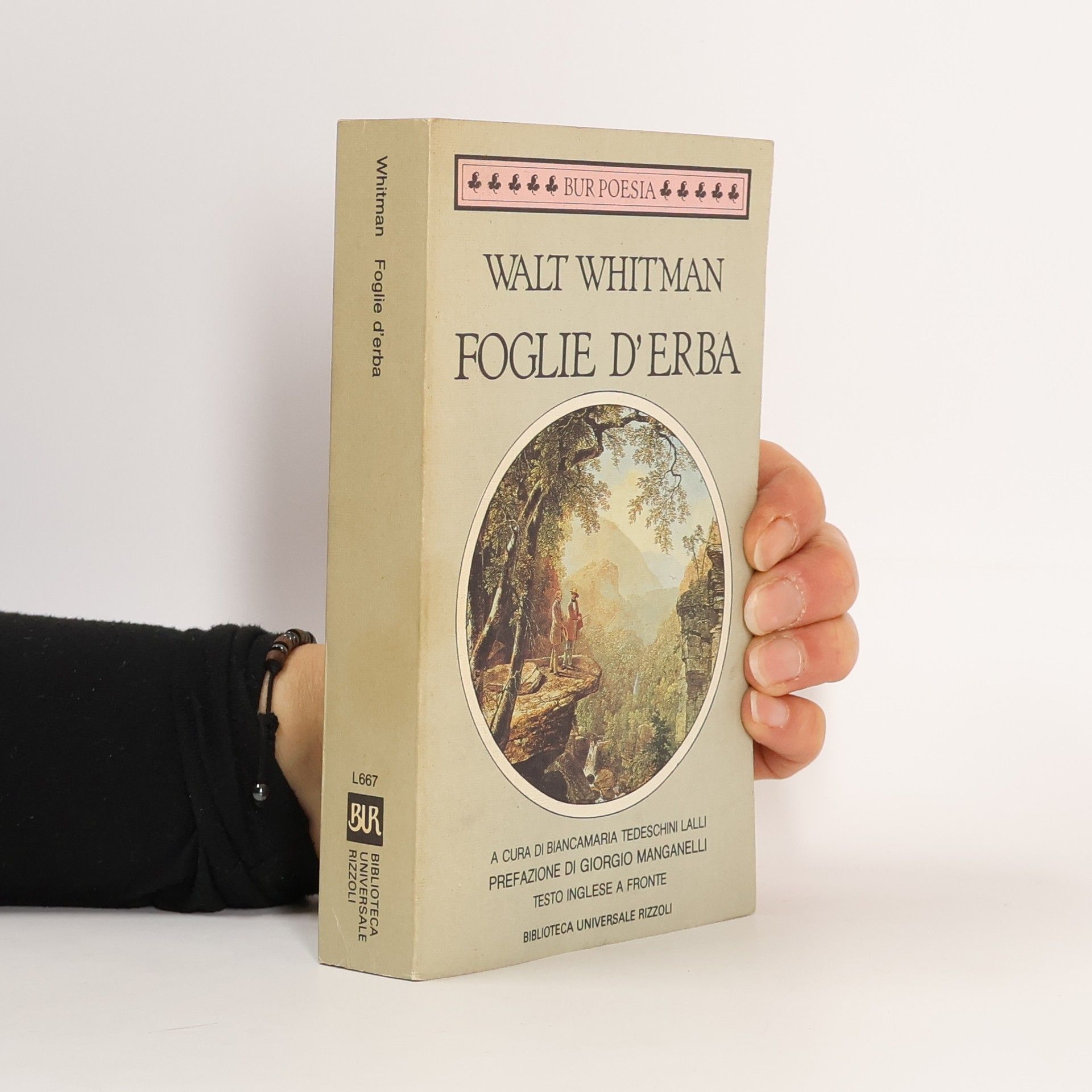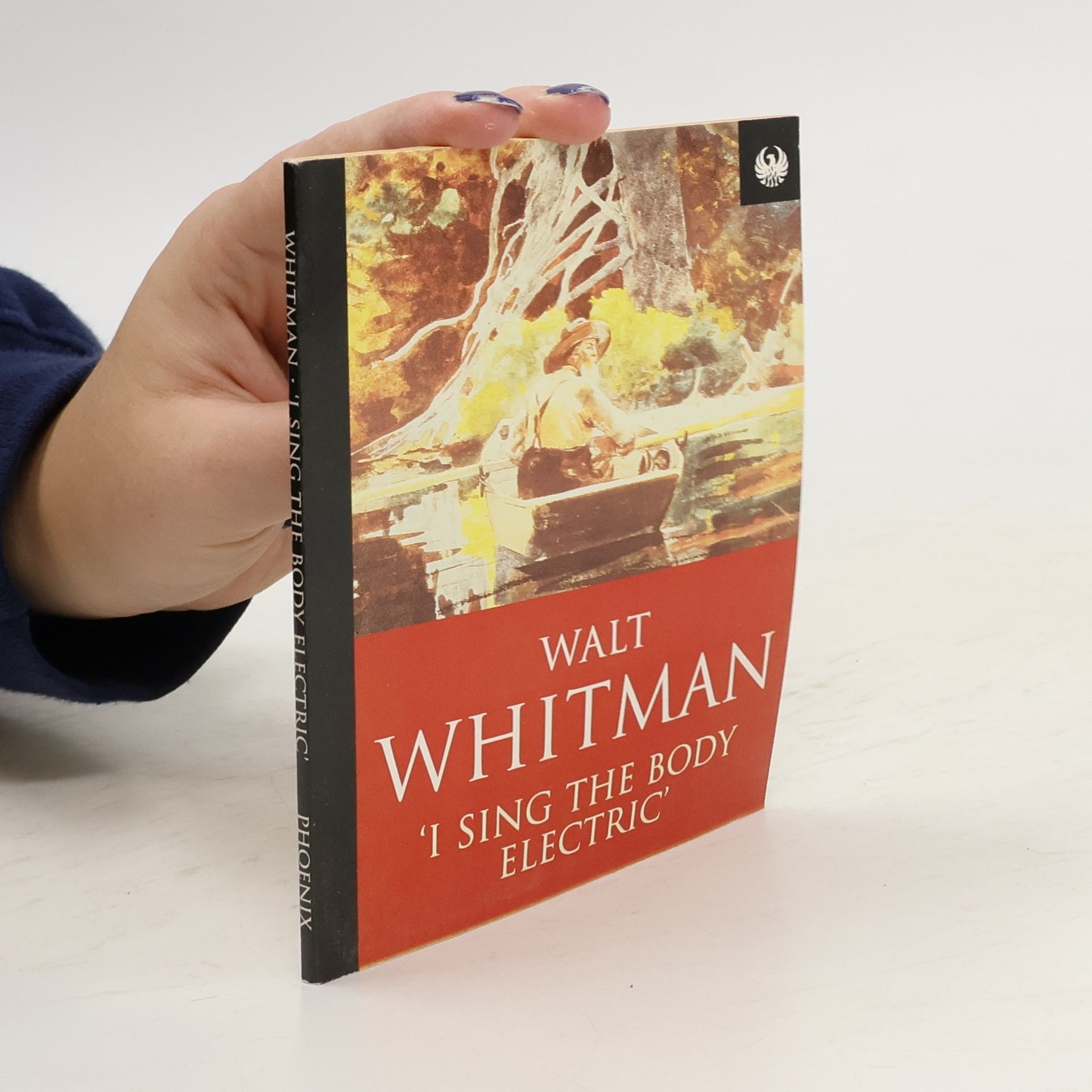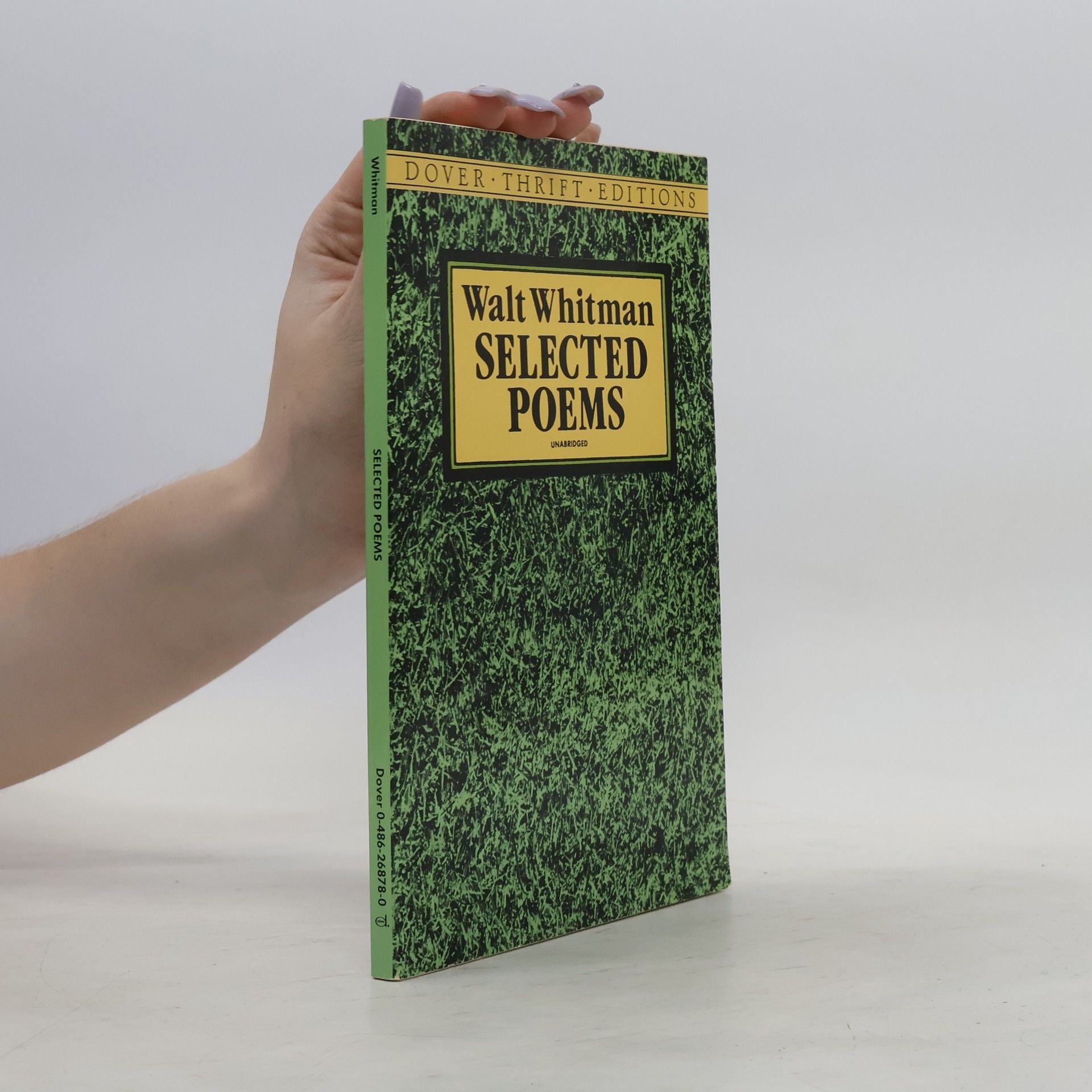Walt Whitman Libri
Walter Whitman, poeta e saggista americano, divenne una figura cardine della letteratura americana. La sua opera, che si muove tra trascendentalismo e realismo, offre una celebrazione umanistica dell'umanità in versi liberi espansivi, guadagnandosi il titolo di "padre del verso libero". Le esperienze di Whitman come giornalista, impiegato e infermiere durante la Guerra Civile informarono profondamente la sua scrittura, che i poeti pionieri hanno elogiato per la sua voce unica e potente. Il suo capolavoro è celebrato come un inno all'umanità, e la sua influenza continua a risuonare.







Leaves of Grass
Foglie d´erba
This exploration delves into Whitman's journey of self-discovery, highlighting his profound and mystical connection with the world around him. The narrative reveals how his experiences shaped his identity and artistic expression, offering a deep understanding of his philosophical and poetic evolution.
The Portable Walt Whitman
- 688pagine
- 25 ore di lettura
When Walt Whitman self-published Leaves of Grass in 1855 it was a slim volume of twelve poems and he was a journalist and poet from Long Island, little-known but full of ambition and poetic fire. To give a new voice to the new nation shaken by civil war, he spent his entire life revising and adding to the work, but his initial act of bravado in answering Ralph Waldo Emerson's call for a national poet has made Whitman the quintessential American writer. This rich cross-section of his work includes poems from throughout Whitman's lifetime as published on his deathbed edition of 1891 and other works.
Live Oak, with Moss
- 192pagine
- 7 ore di lettura
As he was turning forty, Walt Whitman wrote twelve poems in a small handmade book he entitled "Live Oak, With Moss." The poems were intensely private reflections on his attraction to and affection for other men. They were also Whitman's most adventurous explorations of the theme of same-sex love, composed decades before the word "homosexual" came into use. This revolutionary, extraordinarily beautiful and passionate cluster of poems was never published by Whitman and has remained unknown to the general public--until now. New York Times bestselling and Caldecott Award-winning illustrator Brian Selznick offers a provocative visual narrative of "Live Oak, With Moss," and Whitman scholar Karen Karbiener reconstructs the story of the poetic cluster's creation and destruction. Walt Whitman's reassembled, reinterpreted Live Oak, With Moss serves as a source of inspiration and a cause for celebration.
The Million Dead, Too, Summ'd Up: Walt Whitman's Civil War Writings
- 240pagine
- 9 ore di lettura
This book is the first to offer a comprehensive selection of Walt Whitman’s Civil War poetry and prose with a full commentary on each work. Ed Folsom and Christopher Merrill carry on a dialogue with Whitman (and with each other) as they invite readers to trace how Whitman’s writing about the Civil War develops, shifts, and manifests itself in different genres throughout the years of the war. The book offers forty selections of Whitman’s war writings, including not only the well-known war poems but also his prose and personal letters. Each are followed by Folsom’s critical examination and then by Merrill’s afterword, suggesting broader contexts for thinking about the selection. The real democratic reader, Whitman said, “must himself or herself construct indeed the poem, argument, history, metaphysical essay—the text furnishing the hints, the clue, the start or frame-work,” because what is needed for democracy to flourish is “a nation of supple and athletic minds.” Folsom and Merrill model this kind of active reading and encourage both seasoned and new readers of Whitman’s war writings to enter into the challenging and exhilarating mode of talking back to Whitman, arguing with him, and learning from him.
This collection contains the poetic works of Walt Whitman. These poems reflect the vitality of a new nation and the vastness of its lands. They combine autobiographical, sociological and religious themes but did not conform to previous genres.
I Sing the Body Electric
- 64pagine
- 3 ore di lettura
This is a collection of Whitman's sexually and emotionally daring poetry, which challenged his Victorian readers and is still as lively and potent today.
Selected Poems
- 130pagine
- 5 ore di lettura
Presents twenty-four poems from "Leaves of Grass," including "I Hear America Singing," "I Sing the Body Electric," and "O Captain! My Captain!"
Every Hour, Every Atom
- 410pagine
- 15 ore di lettura
Walt Whitman's invaluable notebooks have been virtually inaccessible to the public, until now. Maintaining the early notebooks' wild, syncretic feel and sample illustrations of Whitman's beautiful and unkempt pages, Zachary Turpin and Matt Miller's thorough transcriptions have made these notebooks available to all.


